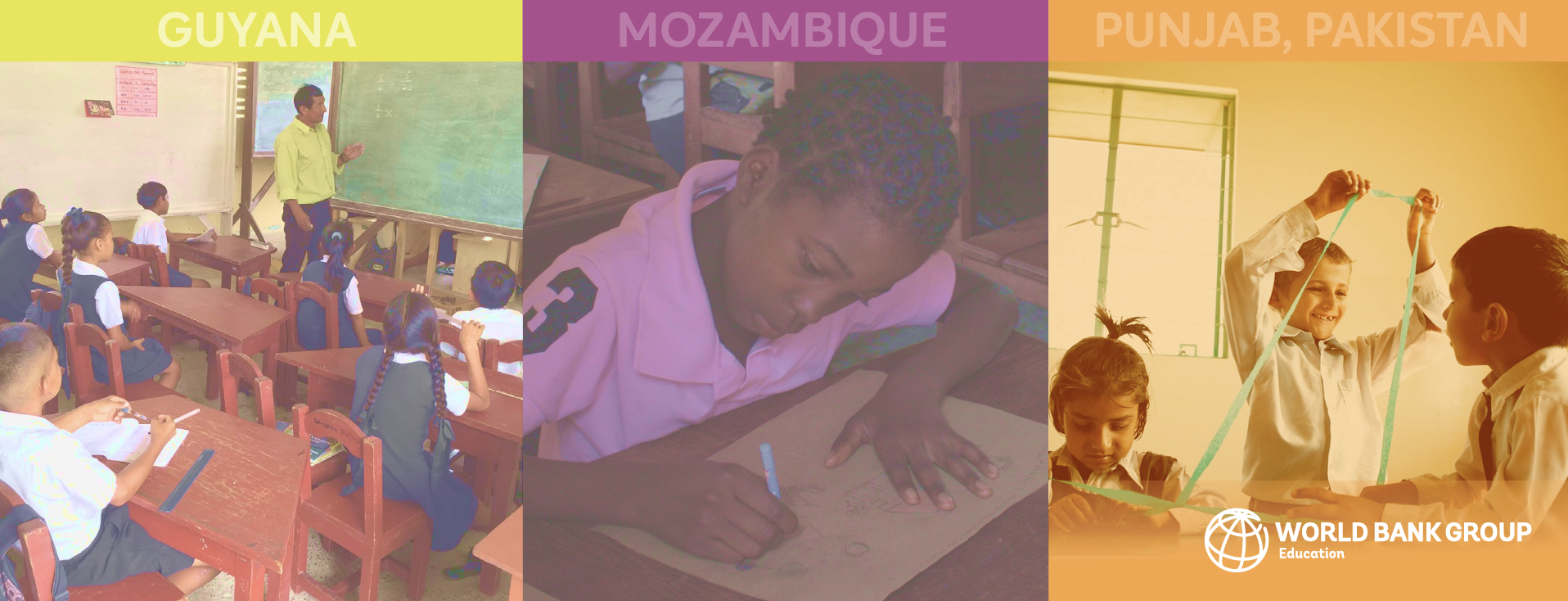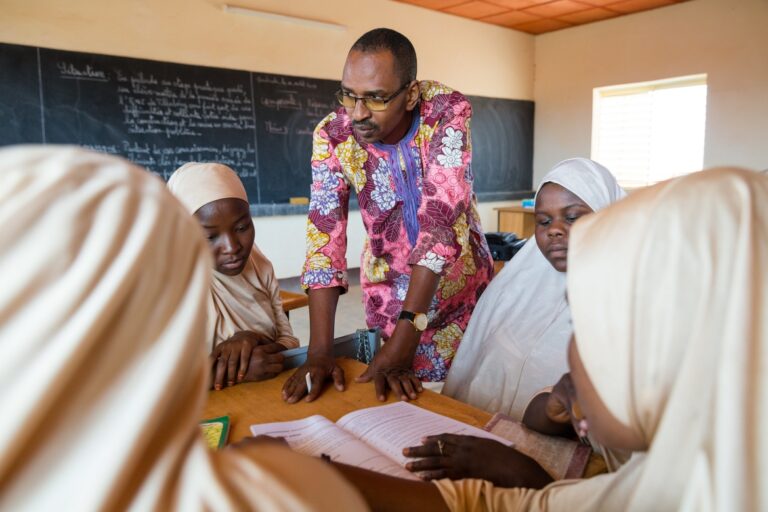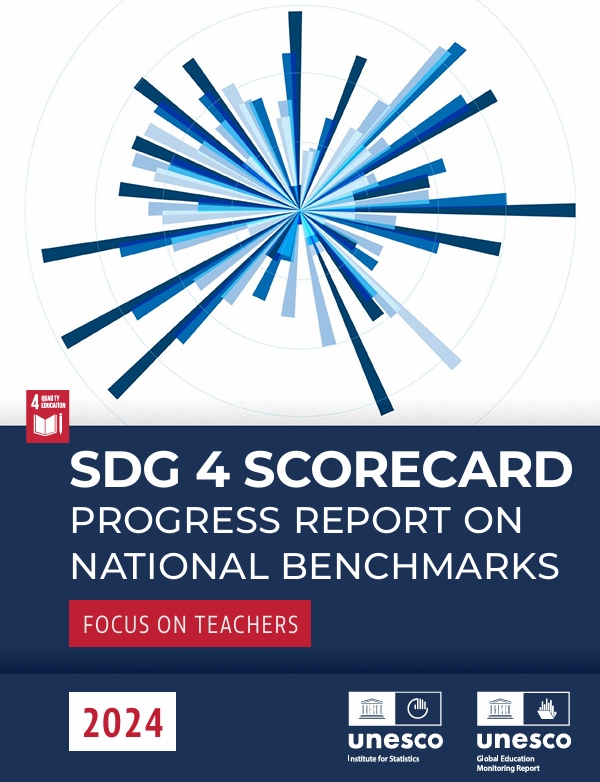This document summarizes three cases of Teach Primary implementations in Guyana; Mozambique; and Punjab, Pakistan, highlighting how the tool has been deployed in the field and describing its impact on policy dialogue.
What Is Teach?
Teach is the World Bank’s suite of open- access classroom observation tools for the ECE, Primary, and Secondary levels. Teach provides a window into one of the less explored and most important aspects of student learning: what goes on in the classroom.
Teach has been designed to help countries track and improve teaching quality, inform policy dialogue, and ensure professional development is aligned to teachers’ needs.
Teach measures teacher-student interactions, focusing on teacher behaviors known to nurture children’s cognitive and socioemotional skills.1 Teach captures both the time teachers spend on learning as well as the quality of teaching practices, focused on three domains: (1) how a teacher creates a culture that is conducive to learning; (2) whether a teacher instructs in a way that deepens student understanding and encourages critical thought; and (3) how a teacher fosters socioemotional skills that encourage students to succeed both inside and outside the classroom. In addition, the tool measures how well teachers use inclusive teaching practices that help all students learn.
Read the full report on the World Bank website.






